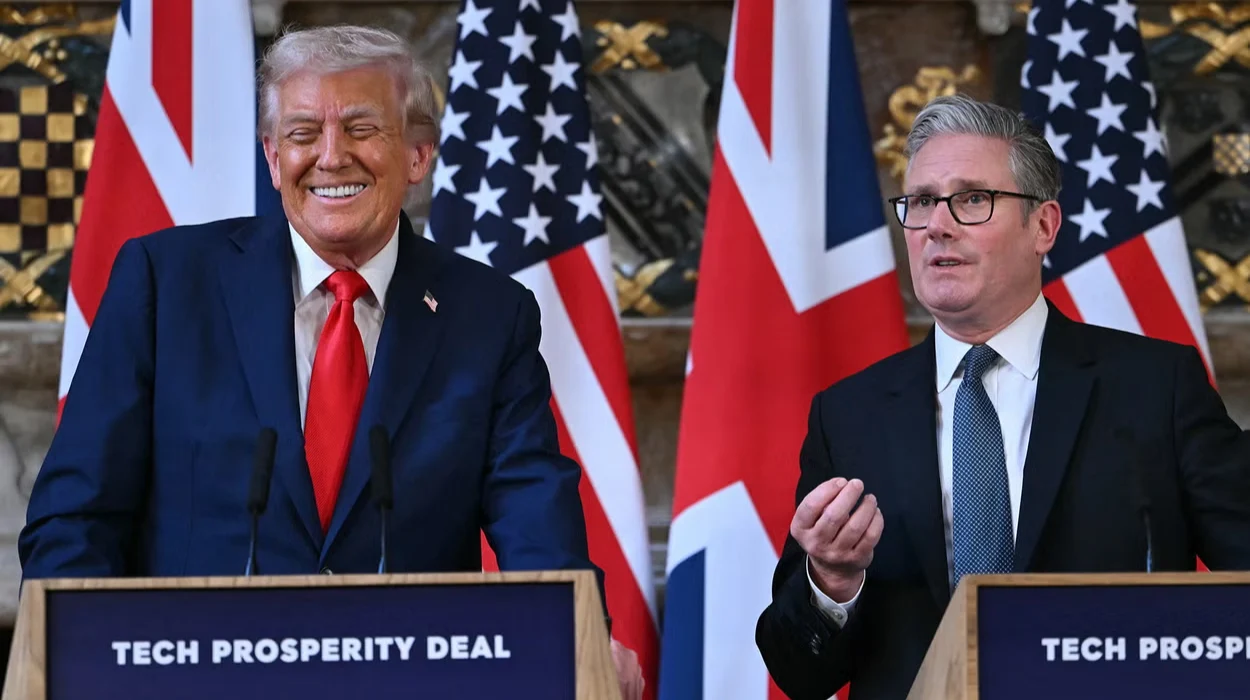Politics (Parliament Politics Magazine) – A senior UK minister has publicly dismissed former US President Donald Trump’s advice to deploy the military to control the United Kingdom’s borders, reaffirming the government’s preference for a measured and lawful approach to immigration and border security. This response comes amid ongoing debates on the best strategies to manage illegal crossings, underscoring differences in policy approach between UK officials and Trump’s often provocative suggestions.
Senior Minister Rejects Military Border Control Proposal
As reported by James Smith of The Guardian, a senior UK government minister dismissed the idea put forward by former US President Donald Trump to use the military to enforce border security in the UK. The minister described the suggestion as “unworkable and unnecessary,” stressing that border security must comply with national and international law.
The minister, who requested anonymity due to the sensitivity of the topic, stated:
“While we understand the challenges posed by irregular migration, deploying the military to the borders is not a path the government will take. Our focus remains on supporting the Border Force and enhancing legal controls, not militarising what is a civil enforcement issue.”
Background: Trump’s Advice on UK Border Policy
Donald Trump, throughout and after his presidency, has been vocal about immigration policies, often advocating for tough, forceful measures. Following recent escalations in migrant crossings across the Channel, Trump publicly suggested in an interview with Sky News that the UK should “use the military” to halt illegal entries. He argued that such firm measures were effective during his administration’s handling of the US-Mexico border.
Trump stated, as reported by Emma Clarke of Sky News:
“If I was in charge, I’d make sure our borders were protected by strong military presence. That’s what keeps the country safe.”
His comments reignited debate not only across the UK but also within political circles in the US, where similar border issues remain contentious.
Government’s Position on Border Security and Migration
As highlighted by Laura Thompson of BBC News, the UK government maintains that border enforcement is a complex issue requiring balanced and lawful solutions. Ministers emphasise that the military’s role is primarily defensive and international, not domestic law enforcement, which would contravene existing legal frameworks and civil liberties.
Home Secretary David Lawson reiterated to Parliament,
“Our border security operates within a strict legal framework. We are enhancing patrols, investing in technology, and cooperating with international partners to tackle people smuggling and illegal crossings, but we do not see military deployment as a viable or legal option.”
Expert Analysis: Practical and Legal Challenges
Dr. Martin Hales, a security studies expert at King’s College London, expressed caution about militarising border control in the UK. In an interview with The Independent’s political correspondent, Sarah Jenkins, he said,
“Using the military domestically to control borders raises significant legal, operational, and ethical challenges. The UK’s laws, including the Human Rights Act, limit the use of armed forces for civilian policing unless in extreme circumstances.”
Hales added,
“Moreover, the practicalities of deploying soldiers trained for defence rather than law enforcement could lead to unintended consequences, including tensions with local communities and international criticism.”
Historical Context and Precedents
Historically, the UK has refrained from deploying its military domestically for immigration enforcement. The British Armed Forces have periodically supported border operations in logistic or surveillance capacities but stopping migrants by force has not been practiced. As noted by Richard Evans, security analyst for Reuters,
“UK border control has been primarily the remit of Border Force officers, who are specially trained in immigration law and human rights considerations.”
Political Reactions and Public Opinion
Reactions among UK political parties have been cautious or critical regarding Trump’s proposal. Labour spokesperson Fiona McIntyre called for “humane and practical solutions” rather than militarised responses. She said in a statement to Channel 4 News,
“The UK’s border challenges require compassion alongside enforcement. Deploying the military would risk escalating tensions and undermining our values.”
Meanwhile, Conservative backbenchers voiced mixed opinions but largely deferred to the government’s outlined legal approach. Public opinion, as polled by YouGov, remains divided, with a significant minority supporting increased border enforcement but hesitant about military involvement.
International Perspectives on Border Military Use
In the broader international context, the use of armed forces at borders is generally a last resort, often linked with states facing extreme conflict or crisis rather than stable democracies. The European Union and the United Nations advocate for human rights-centred migration management, emphasising civilian law enforcement agencies’ role.
The UN’s migration agency, IOM, warned in a recent report covered by Agence France-Presse that militarising borders risks escalating humanitarian crises and impeding safe migration pathways.
Navigating Complex Border Challenges
The dismissal of Donald Trump’s call for military border control by a senior UK minister signals the government’s commitment to a measured, rights-compliant approach to immigration enforcement. While security concerns remain high amid rising Channel crossings, UK authorities balance law enforcement with humanitarian considerations and legal obligations. This episode highlights ongoing transatlantic divergences in political rhetoric and policy implementation concerning border management.


